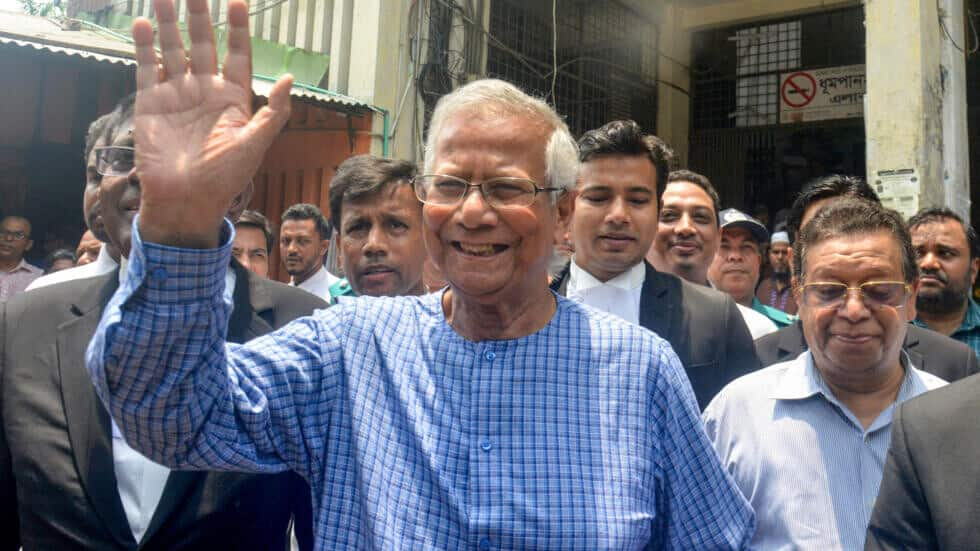
Before Yunus, which Nobel laureates have led their nations
What's the story
Economist Muhammad Yunus, the 2006 Nobel Peace Prize laureate, was sworn in on Thursday as the head of Bangladesh's interim government. Yunus joins a select group of Nobel laureates who later led their countries. Let's take a look at some of them. Notably, this list only includes those who won the Nobel Prize before becoming head of state or government, unlike others who received it after or during their terms, like former United States President Barack Obama.
Canada
Lester B Pearson
Lester B Pearson, a career diplomat and leader of the Liberal Party, served as Canada's Prime Minister from 1963-1968. He was awarded the Nobel Peace Prize in 1957 for his efforts in resolving the Suez Crisis. As Canada's Foreign Minister, Pearson proposed the establishment of the UN's first large-scale peacekeeping force to address this crisis.
Poland
Lech Walesa
Lech Walesa, an electrician by trade, served as Poland's President from 1990-1995. He was the founder and leader of the Solidarity trade union and was awarded the Nobel Peace Prize in 1983 for his "non-violent struggle for free trade unions and human rights in Poland." Despite frequent detentions and constant government surveillance, Walesa led strikes across Poland that ultimately ended communist rule.
Myanmar
Aung San Suu Kyi
Aung San Suu Kyi served as the State Counsellor of Myanmar from 2016-2021, leading the country's transition from military rule to partial democracy. She was awarded the Nobel Peace Prize in 1991 for her "non-violent struggle for democracy and human rights" in Myanmar. Despite being under house arrest for nearly 15 years between 1989 and 2010, Suu Kyi remained a prominent political figure and a symbol of democracy.
South Africa
Nelson Mandela
Nelson Mandela, who served as South Africa's President from 1994-1999, was jointly awarded the Nobel Peace Prize in 1993 with then-President Frederik Willem de Klerk. They were recognized "for their work for the peaceful termination of the apartheid regime, and for laying the foundations for a new democratic South Africa." Despite spending 27 years in prison, Mandela emerged as an international icon of resistance against apartheid and played a crucial role in its peaceful abolition.
East Timor
Jose Ramos-Horta
Jose Ramos-Horta, who has been the President of East Timor since May 2022, was jointly awarded the Nobel Peace Prize in 1996 with Carlos Filipe Ximenes Belo. They were recognized for their efforts "toward a just and peaceful solution" to their country's conflict. Ramos-Horta was a key figure in the resistance movement against Indonesian occupation and proposed a peace plan that ultimately led to East Timor's independence.